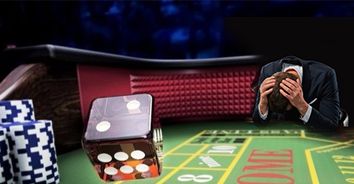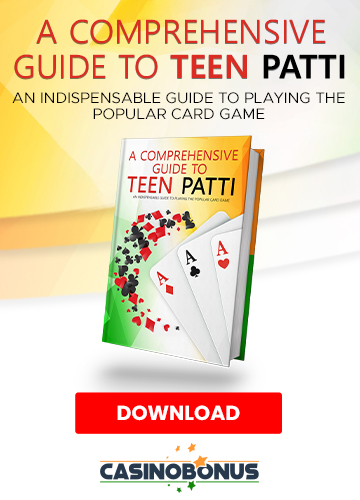Gambling is a slippery slope, a downward spiral that rapidly results in gambling compulsively, or worse into gambling addiction. Like any other addiction, gambling is a process preceded by emotions, thoughts and fantasies. One thought leads to another, which leads to an emotional response, which leads to more emotional responses, which can lead to an obsession.
What's on page
Characterization of gambling addiction

Gambling addiction is a behavioural practice where a person impulsively gambles despite it generating negative consequences in their life. A compulsive gambler is drawn to a high they feel when they place a bet. The brain is swamped with dopamine and endorphins every time an individual places a frequent gambling bet while playing casino games. Ultimately, the brain changes its pattern depending on the use of chemicals, which causes a person to feel either happy or satiated. After a few repetitions of dopamine and endorphins, the brain no longer feels pleased or content, thus urging the gambler to place a bet again.
Identifying the gambling problem

Gambling addiction rarely presents itself in an obvious form, therefore sometimes referred to as the “hidden illness”. Addicts often make a point to suppress, deny, or minimize their problem by often hiding it from loved ones and family members. The fear of embarrassment and pride inhibit honesty, and as a result, many addicts continue to suffer and do nothing about it. But no one becomes a pathological (or uncontrolled) gambler overnight. Emotional states including loneliness, depression, anxiety, stress, or fear can all invoke compulsive gambling.
Gambling addiction vs substance abuse
There is a distinguishing factor between gambling addiction and drug or alcohol addiction which is demonstrated by the very nature of the habit. Unlike the physical effects of a drug or alcohol addiction, gambling is entirely mental. Gambling addicts are said to have impulse-control disorders. It is a disorder in which addicts are unable to control their impulse to gamble, even when they know the consequences. It does not matter whether they are depressed, happy, elated, or broke, gamblers will always find a way to gamble. As irrational as their actions may seem, and no matter how many times they win or lose, they are willing to override their common sense and play again. This is what makes gambling addiction so scary. A common misconception of compulsive gamblers is that they gamble constantly. Problem gamblers may gamble every day or they may gamble infrequently.
Compulsive gambling symptoms, causes and effects
Gambling is one of the most insidious of human vices, as it presents the illusion of easy money yet can quickly lead to financial ruin. The odds are never in your favour whether it is Poker, Blackjack or anything else because it is the house that always wins. Read on to find out about the symptoms, causes and effects of gambling addiction.
The different types of gambling addiction

Gambling is a diverse activity, so different types of gambling addiction exist as well. It is not always obvious when someone is addicted to gambling. The act of gambling is not restricted to slot machines, cards and casinos. Purchasing a lottery ticket, entering a raffle or making a bet with a friend are also forms of gambling. Gambling addiction can occur when a person feels that they are in financial ruin despite availing bonuses such as welcome bonuses, deposit bonuses and free spins and can only solve their problems by gambling what little they have in an attempt to get a large sum of money. Unfortunately, this almost always leads to a cycle in which the gambler feels they must win back their losses, and the cycle goes on until the person is forced to seek rehabilitation to break their habit.
Another type of gambling addiction starts when a gambler plays the games claiming the bonuses and makes risky bets to experience the emotional high associated with taking huge risks that occasionally pay off.
What causes an addiction to gambling?
Many factors can contribute to a gambling addiction namely:
- Desperation for money
- The desire to experience thrills and highs
- The social status associated with being a successful gambler
- The entertaining atmosphere of the mainstream gambling scene
Unfortunately, once a gambling addiction takes hold, breaking the cycle is difficult. Severe addictions can take hold when someone feels desperate financially and wants to make back what they have lost. Once the person finally wins, while they may end up collecting a massive amount of money from that win, it is rarely enough to cover what has already been lost. Most gamblers never even come close to breaking even.
The signs of a gambling problem include:
- Feeling the need to be secretive about gambling
- Having trouble controlling gambling habits
- Gambling when you cannot afford to
- Your friends and family express concern about your gambling
Of course, as with any other addiction, the hallmark sign of a gambling problem is that you feel you cannot stop. If you feel like you need to try just one more time, or if you feel anxious when you think about quitting, it is highly likely you are suffering from a gambling addiction. If you think you or your loved one may be suffering from a gambling addiction, call to talk about the signs of gambling addiction and your situation.
Emotional symptoms of excessive gambling
Excessive gambling often causes a multitude of emotional symptoms, including anxiety, depression, and even suicidal thoughts and tendencies. In extreme situations, these thoughts may lead a gambler to attempt to end their life. Losing everything to gambling is devastating and leaves many people feeling completely hopeless.
Physical symptoms of excessive gambling
Because gambling can cause depression, anxiety and self-harming tendencies, several physical signs are to be watched out for. Depression and anxiety sometimes lead to sleep deprivation, which may result in pale skin, weight gain or weight loss, acne and dark circles under the eyes.
Short-term and long-term effects of gambling addiction
Gambling is associated with many additional effects, in both the short- and long-term.
- Gambling addiction frequently results in other addictions that serve as coping mechanisms for people who are stressed out by the activity.
- Many gamblers turn to drugs, alcohol and other activities to alleviate the anxiety brought on by the gambling lifestyle.
- Even if a gambler never experiences financial ruin as a result of the lifestyle, they may struggle with drug and alcohol addiction for the rest of life after self-medicating to deal with the stress.
- This addiction renders a lot of loss in terms of both finance and assets.
- Those with severe gambling addictions cannot think rationally and go to extreme extents to manage finances for their bets.
- Personal relationships also get stressed with gambling addiction.
- Individuals tend to borrow money from others, mortgage out assets to fulfil their gambling needs and spin a web of lies to keep things in the unknown.
- The addiction can also cause individuals to have anxiety pangs, mood swings or depression and keep them away from attending work.
Is there a test or self-assessment?
If you think you may have a gambling problem, ask yourself whether you would be okay if you stopped gambling right now. If you feel anxious or as if you should not stop yet, chances are you are suffering from a gambling addiction.
Depression and gambling
Because gambling addiction is often associated with depression, you should watch out for signs if you or your loved one is suffering from this disorder. Lethargy, fatigue, change in appetite and unhappiness are several symptoms out of many that someone is suffering from depression.
Gambling addiction treatment
Overcoming a gambling problem is never easy and seeking professional treatment does not mean that you are weak in some way or cannot handle your problems. But it is important to remember that every gambler is unique so you need a recovery program tailored specifically to your needs and situation. You should talk to your doctor or mental health professional about different treatment options, including:
-
Inpatient or residential treatment and rehab programs
These are aimed at those with a severe gambling addiction who are unable to avoid gambling without round-the-clock support.
There is a treatment for underlying conditions aiding compulsive gambling, including substance abuse or mental health problems such as depression, anxiety, OCD, or ADHD. This could include therapy, medication, and lifestyle changes. Problem gambling can sometimes be a symptom of bipolar disorder, so your doctor or therapist may need to rule this out before making a diagnosis.
-
Cognitive-behavioural therapy
CBT for gambling addiction focuses on changing unhealthy gambling behaviours and thoughts, such as rationalizations and false beliefs. It can also teach you how to fight gambling urges and solve financial work, and relationship problems caused by problem gambling. Therapy can provide you with the tools for coping with your addiction that will last a lifetime.
-
Family therapy and marriage, career, and credit counselling
These can help you work through the specific issues that have been created by your problem gambling and lay the foundation for repairing your relationships and finances.
The time duration of gambling addiction treatment
The usual time duration of treatment depends on each situation and recovery and hence some people may require more time. An initial assessment helps in deciding the period.
Confidentiality of the gambling addiction treatment
Generally, such treatments at rehabs are confidential. Other than the people chosen to be told, there are no disclosures to anyone else.
Post-process treatment
Post the treatment every individual is encouraged to participate in the aftercare programs scheduled by their rehabs which include online meetings, contact with the support team when required and yearly reunions to boost more patronage to the community.
Medication options for gambling disorders
While gambling cannot be directly treated with medication, it is possible to alleviate the anxiety and depression that results from gambling and often leads to it in the first place. You should contact any rehab for gambling addiction to ask for their help and guidance regarding this matter.
Drugs: Possible options
The most common way to treat a gambling problem with the medication is to prescribe anti-anxiety and antidepressant medicines. Feeling depressed and anxious often exacerbates gambling addiction, so treating these disorders may make it easier to break the cycle and get back to a normal life.
Medication side effects
As with just about any medication, certain side effects are associated with antidepressants and anti-anxiety medication. Some of these medications may make you feel worse before you feel better. For detailed information on the side effects of various depression and anxiety medications, you should consult your psychiatrist. It is of utmost importance to remember not to self-medicate for anxiety or depression. These disorders are serious, and self-medication can be extremely dangerous.
Antidepressant drug addiction, dependence and withdrawal in gamblers
While anxiety and depression medications are often highly successful helpers on the path to recovery, it is possible to become addicted to these medications as well. For this reason, it is often a good idea to enrol in an inpatient treatment centre while you recover from your addiction, so a trained team of professionals can monitor you for dependence and withdrawal symptoms related to your medications.
Dealing with gambling cravings
You may feel the urge to gamble, which is normal, but as you choose healthier options and a strong support network, resisting cravings will become easier. When gambling craving strikes, you must try to avoid isolation. You should call a trusted family member, meet a friend for coffee, or go to a gamblers anonymous meeting. As you wait, the urge to gamble may pass or become weak enough to resist. Do try to distract yourself with another activity, such as going to the gym, watching a movie, or practising a relaxation exercise for gambling cravings.
Coping with lapses
If you are not able to resist the craving to gamble, you should not be too hard on yourself or use it as an excuse to give up. It is a tough process to overcome gambling addiction. You may slip from time to time. But the important thing is to learn from your mistakes and continue working towards recovery.
How to help someone stop gambling?
In this case, you are on the opposite side of the door. If your loved one has a gambling problem, you are likely to have many conflicting emotions. You may have spent a lot of time and energy trying to keep your loved one from gambling or having to cover for them. At the same time, you might be furious at your loved one for gambling again and tired of trying to keep up the charade. Your loved one may have borrowed or even stolen money with no way to pay it back. They may have sold family possessions or run up huge debts on joint credit cards.
While compulsive and problem gamblers need the support of their family and friends to help them in their struggle to stop gambling, the decision to quit has to be theirs. As much as you may want to, and as hard as it is seeing the effects, you cannot make someone stop gambling. However, you can encourage them to seek help, support them in their efforts, protect yourself, and take any talk of suicide seriously.
Final thoughts
Gambling is meant to be a fun and exciting activity. If you can handle it and be responsible for it, you can enjoy it, and we wish you the best of luck. But if you start going down the rabbit hole then and think you might be a problem gamblers, then, it is time for you to seek help.






